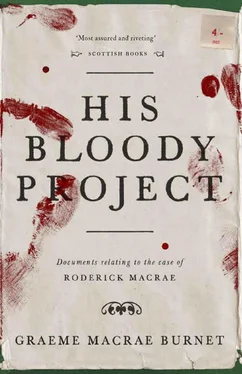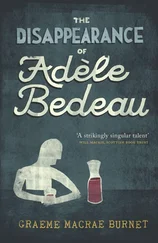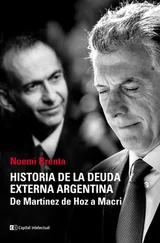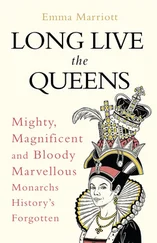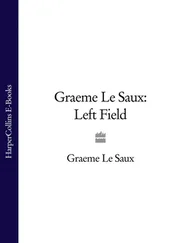Graeme Burnet - His Bloody Project
Здесь есть возможность читать онлайн «Graeme Burnet - His Bloody Project» весь текст электронной книги совершенно бесплатно (целиком полную версию без сокращений). В некоторых случаях можно слушать аудио, скачать через торрент в формате fb2 и присутствует краткое содержание. Год выпуска: 2015, Издательство: Contraband, Жанр: Современная проза, на английском языке. Описание произведения, (предисловие) а так же отзывы посетителей доступны на портале библиотеки ЛибКат.
- Название:His Bloody Project
- Автор:
- Издательство:Contraband
- Жанр:
- Год:2015
- ISBN:нет данных
- Рейтинг книги:5 / 5. Голосов: 1
-
Избранное:Добавить в избранное
- Отзывы:
-
Ваша оценка:
- 100
- 1
- 2
- 3
- 4
- 5
His Bloody Project: краткое содержание, описание и аннотация
Предлагаем к чтению аннотацию, описание, краткое содержание или предисловие (зависит от того, что написал сам автор книги «His Bloody Project»). Если вы не нашли необходимую информацию о книге — напишите в комментариях, мы постараемся отыскать её.
A brutal triple murder in a remote northwestern crofting community in 1869 leads to the arrest of a young man by the name of Roderick Macrae. There’s no question that Macrae is guilty, but the police and courts must uncover what drove him to murder the local village constable.
And who were the other two victims? Ultimately, Macrae’s fate hinges on one key question: is he insane?
His Bloody Project — читать онлайн бесплатно полную книгу (весь текст) целиком
Ниже представлен текст книги, разбитый по страницам. Система сохранения места последней прочитанной страницы, позволяет с удобством читать онлайн бесплатно книгу «His Bloody Project», без необходимости каждый раз заново искать на чём Вы остановились. Поставьте закладку, и сможете в любой момент перейти на страницу, на которой закончили чтение.
Интервал:
Закладка:
‘Yes, I must have,’ he said.
I did not feel the necessity to press the prisoner further on this point, having already achieved my purpose in thus confronting him. I returned the papers to my satchel and stood up to indicate that the interview was at an end. Mr Sinclair pushed himself from the wall against which he had been leaning and stood to attention. I indicated that we were ready to leave and he had us released from the cell. I instructed the gaoler to remove the tray of food brought from the inn and was quite sure that he would have no compunction about helping himself to the remains.
* * *
Mr Sinclair and I arrived in Applecross on the evening of the 26th of August after an arduous journey. The inn where we were to stay the night was commendably clean with white-washed walls, simple furniture and a good fire burning in the hearth. We received a hospitable welcome and were served a meal of mutton stew by a well-proportioned girl with a healthy complexion. The local men were generally swarthy and of low stature, but were otherwise robust and did not display any apparent congenital deformities. They conversed in the barbaric tongue of the region, so I cannot attest to the content of their discussions, but despite the large quantities of ale they imbibed, their behaviour was not dissolute; nor did there appear to be any prostitutes on the premises. Our presence did not seem to warrant any special attention and when I questioned our hostess about this, she replied that on account of the great number of people who came to the Big House for the shooting, it was not in the least unusual for gentlemen to stop at the inn. I retired at the earliest opportunity, leaving my Mr Sinclair to his convivial surroundings, and slept soundly.
We rose early and were served a breakfast of blood pudding and eggs accompanied by a tankard of ale, which my companion drank with enthusiasm. There being no jig to convey us from Applecross, two ponies were provided and we set off for Culduie. The morning was bright and the air crisp and fresh. The village of Applecross was most pleasingly situated on the shore of a sheltered bay and the houses there, though primitive, were soundly built. Despite the early hour, a number of crones were seated on benches outside their houses, a good proportion of them, I would estimate, well into their eighth decade. Some of them puffed on small pipes, while others occupied themselves with knitting. All of them eyed us with curiosity, but none greeted us.
After a mile or so we passed through the village of Camusterrach, a ramshackle collection of huts arranged around a simple harbour. This village boasted a church of rudimentary construction, a fine stone manse and a school, and these latter buildings lent the place a little propriety. Certainly, neither Applecross nor Camusterrach — primitive as they were — prepared us for the wretched collection of hovels that comprised the domicile of R— M—. The short ride between Camusterrach and Culduie afforded, it must be said, a magnificent vista of the isles of Raasay and Skye. The strait that separated these islands from the mainland sparkled agreeably in the sunlight. The contrast when we turned into the track which led to Culduie could not have been greater, and I can only imagine that the unfortunate natives of this place must daily avert their eyes from the beauty before them, so as not to be reminded of the squalor in which they dwell. The majority of houses, if they can be termed as such, were of such rude construction that one would have taken them for byres or pig-sties. They were built from a clutter of stones and turf, and topped with rough thatch, which despite the warmth of the day reeked with peat smoke, so that it appeared that each of the houses was gently smouldering. As we made our way along the track, a man at work on his crops paused and stared openly at us. He was a squat figure, thickly bearded, and quite repellent in his visage. Only the house at the junction of the village boasted a slate roof and looked fit for human habitation. It was here that we stopped to ask directions to the house of Mr M—, the father of the accused. We were greeted at the door, to my great surprise, by a most handsome woman, who, before we had the opportunity to state the reason for our visit, invited us into her home. I admit that I was curious to observe at first hand the living conditions of these people and I was pleasantly surprised by the interior of the house. Although the floor consisted of no more than earth, it was freshly swept and there was a general atmosphere of good hygiene. There were a number of items of crude but serviceable furniture and we were invited to sit in two armchairs arranged by the hearth. Mr Sinclair began to explain that there was no need for us to sit as we had only called to ask directions to the home of the M— family, but I quieted him and said that we would be pleased to accept our hostess’s hospitality for a few minutes. As we had travelled a great distance to learn something of the community that had spawned R— M—, it would be negligent not to take advantage of any opportunities to do so. The study of the criminal class should not focus exclusively on heredity, but must as well pay heed to the conditions in which the degenerate individual exists. Heredity cannot, in itself, account for the perpetration of a crime. The foul air of the slum, hunger and a general milieu of immorality must also be admitted as factors in the manufacture of the criminal. Numerous studies have been made of degenerate offspring who, having been removed from the squalid haunts of their parents, have been brought up to lead, within the limitations of their intellect, quite productive lives.
I was thus pleased to have this chance to learn a little about the well from which R— M— had issued. Once we had introduced ourselves, Mrs Murchison called two of her daughters to serve us tea and sat with us by the fire. Excepting her plain clothes, I would not have been ashamed to present Mrs Murchison in a drawing room in Perth. She had fine features and intelligent brown eyes. She bore herself with a dignity that suggested she was not unaccustomed to conversing with educated men. Her daughters, whom I judged to be around twelve and thirteen years old, moved with a similar grace and were pleasingly proportioned, both in body and countenance. Mrs Murchison explained that her husband, a stone mason, was that day away from home. I enquired how she had him and she explained that they become acquainted in the nearby town of Kyle of Lochalsh, where her father was a merchant of good standing. Mr Murchison had thus avoided the great folly of the coastal tribes of Scotland, who through incessant intermarriage to those in closest proximity, perpetuate their physical peculiarities and deficiencies. The tea was served in china cups, along with scones spread with butter. I complimented Mrs Murchison on her well-bred children. She replied that she had four further daughters and I offered my condolences on her misfortune not to have been blessed with a son.
I then explained the nature of our mission in Culduie and asked her opinion of the accused. Mrs Murchison avoided my question, instead remarking on the tragic nature of the recent crimes and the effect it had had on their little community.
I noted her use of the word ‘tragic’, and asked why she characterised the events in this way.
‘I cannot see how else one might describe such events.’
‘I was only curious,’ I replied, ‘as to why you might term such deeds as “tragic”, rather than, say, evil or wicked.’
Mrs Murchison then glanced at both of us, as if seeking assurance that she might speak openly with us.
‘If you wish to have my opinion, Mr Thomson,’ she said, ‘I believe there is far too much talk of wickedness in these parts. The way some people talk, one would think that we existed in a state of perpetual debauchery.’
Читать дальшеИнтервал:
Закладка:
Похожие книги на «His Bloody Project»
Представляем Вашему вниманию похожие книги на «His Bloody Project» списком для выбора. Мы отобрали схожую по названию и смыслу литературу в надежде предоставить читателям больше вариантов отыскать новые, интересные, ещё непрочитанные произведения.
Обсуждение, отзывы о книге «His Bloody Project» и просто собственные мнения читателей. Оставьте ваши комментарии, напишите, что Вы думаете о произведении, его смысле или главных героях. Укажите что конкретно понравилось, а что нет, и почему Вы так считаете.
